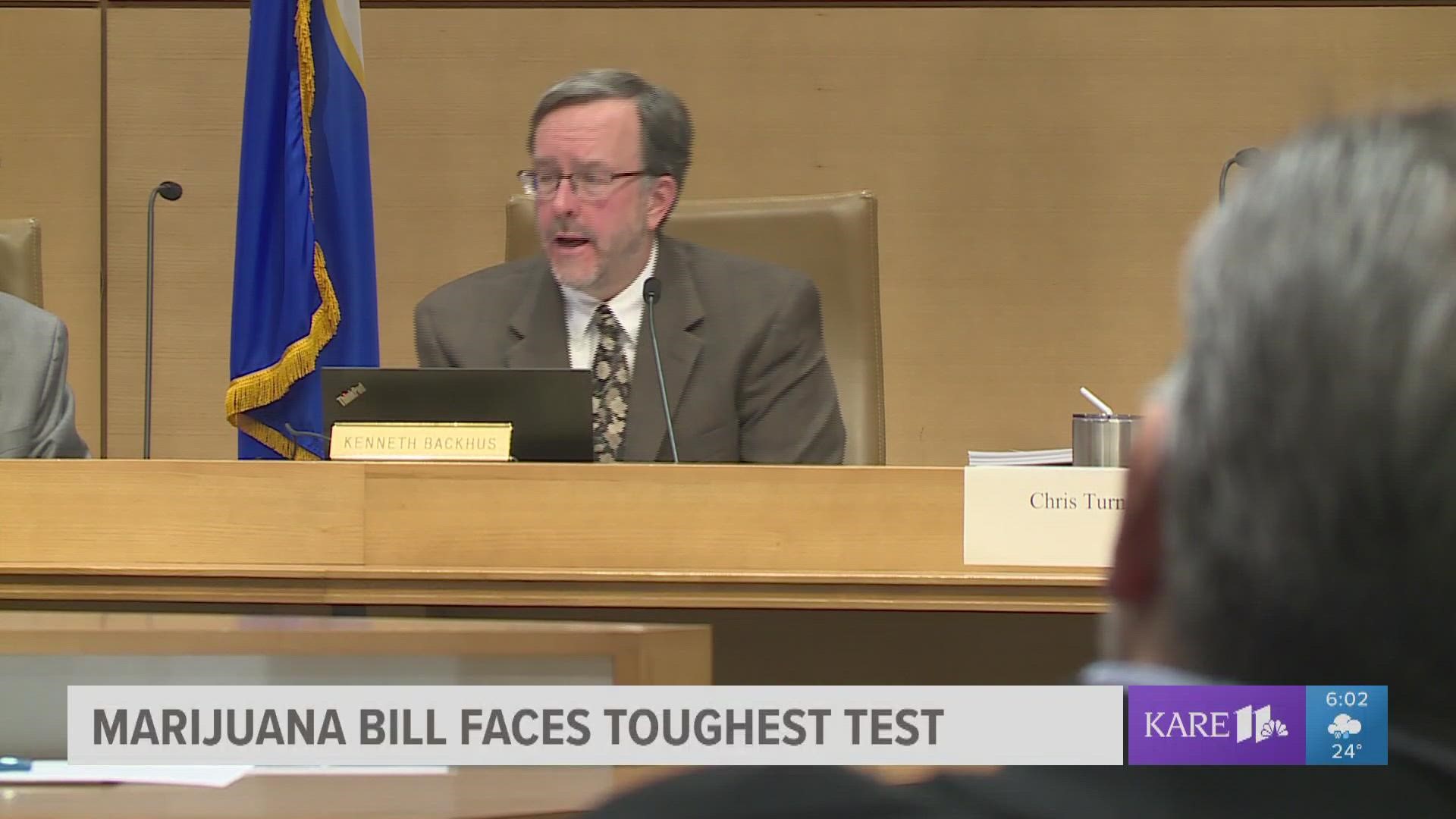ST PAUL, Minn. — For the first time ever Minnesota senators have taken testimony on a bill that would legalize recreational marijuana if it were to become law.
Sen. Lindsey Port's Senate File 73 would create a regulated commercial cannabis marketplace in the state, and also provide expungement for those who were convicted of low-level marijuana offenses in the past.
"Senate File 73 sets the tax rate for cannabis products, provides business development grant programs, will have an automatic expungement program, as well as setting up an expungement panel for higher-level offenses," Sen. Port told the Senate Public Safety Committee.
"Over the next month or so, this bill will have 18 committee stops," Port told fellow senators. "So, you will all be as familiar as I am."
The legislation passed the DFL-controlled House in the past, but never got a hearing in the Senate until this year when Democrats regained control of that chamber.
On a voice vote, the public safety panel passed the bill without recommendation, expecting to revisit the legislation at a later point and take a deeper dive into the pros and cons. The next stop is the Senate Commerce Committee, with a hearing scheduled for Thursday afternoon.
A companion version is tracking its way through the House, with at least a dozen hearings anticipated. The House Labor Committee will also hear it on Thursday.
The expungement and business development aspects of the bill are designed to address the fact that criminal prosecution of marijuana violations historically fell disproportionately upon lower-income persons of color.
"It's just so important that the benefits of legalizing cannabis are going to those who were harmed most by cannabis prohibition," Sen. Clare Oumou Verbeten, the co-author of the Senate version told her colleagues.
"White Minnesotans and Black Minnesotans consume cannabis at the same rates, and yet Black Minnesotans are five times more likely to be arrested for consuming cannabis."
The law enforcement community is firmly against making it easier for more people to consume the drug, due principally to traffic safety concerns.
"When other states legalized marijuana the number of fatalities increased where one or more drivers was marijuana-impaired," Olmsted County Sheriff Kevin Torgerson, speaking on behalf of the Minnesota Sheriffs' Association, told lawmakers.
He urged them to postpone full legalization until police agencies have an opportunity to put more testing and enforcement systems into place across the state.
The Minnesota Trucking Association is also opposed to legalization, saying that it will make the shortage of drivers even worse because new applicants will fail required drug tests.
"When they fail the test, they cannot become a truck driver. We have an 8,000 truck driver shortage today. And, as you all know, trucking is the lifeblood of Minnesota's economy," John Hausladen of the MTA remarked.
Supporters argue that Minnesotans are already using marijuana widely but are forced to rely on a black market that brings with it many other dangers beyond the risk of being arrested.
"People have to go to the black market, to criminals – by definition – to obtain cannabis," Tom Evenstad, a supporter told legislators.
He said his own sister went to dealers years ago seeking marijuana and ended up being heavily drugged and sex trafficked across the country.
Evenstad reviewed the history of marijuana prohibition, pointing out that Congress outlawed cannabis in 1937 based on wildly inflated reports of the drug's connections to violent attacks and murders.
Oliver Steinberg, the chair of the Grassroots Legalize Cannabis Party, asserted that the prohibition of marijuana has failed to keep people from using it but has created other problems.
"We've succeeded perhaps in terrorizing or intimidating citizens, in canceling civil liberties, blighting both urban and rural communities, all without eradicating the outlawed substance."
Watch more Minnesota politics:
Watch the latest political coverage from the Land of 10,000 Lakes in our YouTube playlist:

